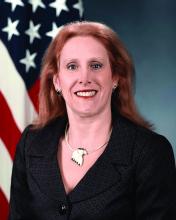The following opinions are my own and not those of the U.S. Department of Defense.
We often lament the shortage of psychiatrists in the United States, but the problem is dire across the globe. According to the World Health Organization, in low- and middle-income countries, 45% of the population lives with less than one psychiatrist per 100,000 citizens.
For many countries, this translates into increased costs for medical care, loss of employee productivity, higher percentages of the population living in poverty, impacts to national security, and an inability to respond to disasters or war. Therefore, significant expansions of mental health approaches need to take place to extend the scope of care beyond traditional therapeutic modalities.
This was one of the themes of the WHO’s recent Mental Health Gap (mhGAP) Forum in Geneva. Sessions at the forum, which ran from Oct. 10-11, stressed the importance of moving beyond strategic planning to program implementation and evaluation. The updated WHO mhGAP Intervention Guide Version 2.0 was introduced on World Mental Health Day – the opening day of the forum. The new guide targets depression, psychosis, epilepsy, child and adolescent issues, dementia, and suicide. One aim of the guide is to facilitate the scope of interventions in nonspecialized health settings, because the burden of disease, disorder, and mortality related to these targeted conditions have implications across multiple socioeconomic groups. This is especially true in low- and middle-income countries.Another meaningful theme was the importance of cultural competence when it comes to patient care. Access to well-trained and supervised clinical and nonclinical providers who are culturally sensitive builds capacity to treat mental, neurologic, and substance use disorders in communities worldwide. Those goals also should include comprehensive care and effective case management, resilience and prevention awareness activities, self-efficacy skills building, technological and innovative capabilities, research and surveillance support, and human rights protections.
Representatives from more than 30 member countries attended the forum, as did United Nations agencies and intergovernmental organizations. Several noteworthy innovative practices emerged. Impressive were projects in Canada that involved all of its representatives in a suicide awareness campaign instituted through a toolkit, increased epilepsy care in remote areas of Ghana, Malta’s law on autism as a policy model, low-intensity interventions in the United Kingdom, and “task-shifting” to nonmedical peer counselors supporting new mothers in India.
Other new guides that complement the mhGAP were introduced, such as a group interpersonal psychotherapy for a depression manual that was piloted in 30 villages in Uganda (JAMA. 2003;289[23]:3117-24) and a Problem Management Plus guide for responding to trauma survivors, which was punctuated by a presentation on Psychological First Aid. Other tools being developed include a prototype of a mobile application for the mhGAP Intervention guide and a suicide prevention toolkit in preparation for World Health Day on April 7, 2017, when “Depression: Let’s talk,” will be the yearlong campaign theme. This will be the first time in 15 years that a mental health condition will be highlighted. This worldwide attention should help raise awareness about the nature of depression, reduce stigma, and encourage help-seeking behavior. It also should act as a call to clinicians who routinely treat patients with major depressive disorder.
I would encourage psychiatrists and primary care physicians to get involved in the “Depression: Let’s talk” campaign and to start making plans for events throughout 2017. For more information on WHO and its mental health efforts, visit online.
Ms. Garrick is a special assistant, manpower and reserve affairs for the U.S. Department of Defense. Previously, she served as the director of the Defense Suicide Prevention Office. She has been a leader in veterans’ disability policy and suicide prevention and peer support programs; worked with Gulf War veterans; and provided individual, group, and family therapy to Vietnam veterans and their families dealing with posttraumatic stress disorder.


